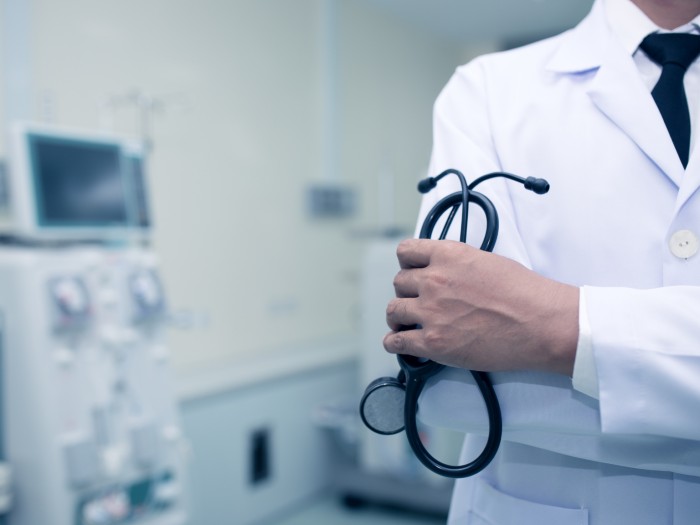We care for your Health
Welcome to our website, designed to inform and assist you and your family throughout your experience of Kidney Care Clinic.



Nephrologist
Dr. Abhay N. Sadre, an eminent nephrologist of pune is one of the leading nephrologists in India. He passed his MD(Medicine) from Aurangabad,Marathwada University in 1988 and DM(Nephrology) in 1994 from Bombay University, Mumbai.
Dr. Sadre offers curative services,kidney transplant, dialysis. The facility is well equipped with all modern gadgets and diagnostic and surgical equipment. India s large and diverse population warrants an efficient health care infrastructure that should be accessible to all strata s of society. Good quality health care should not be a privilege of the elite only. Since we set up Kidney Care Clinic in 1988, my vision and endeavor has been to bring state-of-the-art health care to the masses of India. In order to achieve this, we at Kidney Care, are committed to providing advanced medical care at a minimum possible cost.
Choosing the right hospital for your medical needs is always a difficult choice for a patient or guardian. Kidney care clinic has gained an enviable reputation of delivering quality healthcare solutions which are available to all sections of the society


We are always dedicated to giving you the best support and that's why we have made a free asked question site for you. This will help you to make good and better knowledge for us.
That depends on what stage your CKD is in and how quickly it progresses.
National Kidney Foundation (NKF) guidelines recommend you start dialysis when your kidney function drops to 15 percent or less—or if you have severe symptoms caused by your kidney disease, like shortness of breath, fatigue, muscle cramps or nausea and vomiting. Your doctor will help you decide, based on lab tests that measure how much kidney function you have left and on your symptoms.
Yes, dialysis is something you can do for the rest of your life. And, most people on dialysis enjoy a good quality of life. Some people have been on dialysis for 30 years or more without getting a transplant. How long you can live on dialysis, and how well you do, will depend on a number of things, including how healthy you are, your attitude, your quality of healthcare and how much you take an active role in your care.
The usual schedule for in-center hemodialysis treatments is three times a week. You will likely have the same morning or afternoon time for each treatment. The length of your treatment depends on what is prescribed. Three to four hours is common.
PD is commonly done on a nightly basis using an automated cycler machine while a person sleeps. A patient will typically be connected to the cycler for 8 to 10 hours each night and be free of dialysis during the day. Some people will choose to do manual PD, which usually means doing four to five exchanges per day. Each exchange takes 20 to 30 minutes, and they need to be spread out over the whole day to clean the blood well.
Putting on weight between hemodialysis is not unusual, this is due to the kidney not excreting fluid. It is also due to drinking fluids. You should only drink the restricted amount of fluid that is allowed. Usually the dialysis unit advises this.
Yes, this can lead to fluid overload and accumulation of waste products in the body. This can lead to breathing problems due to a serious condition called pulmonary edema where fluid gets accumulated in the lungs.
Yes, This can cause serious infection of the peritoneal cavity and if not taken care Immediately.


